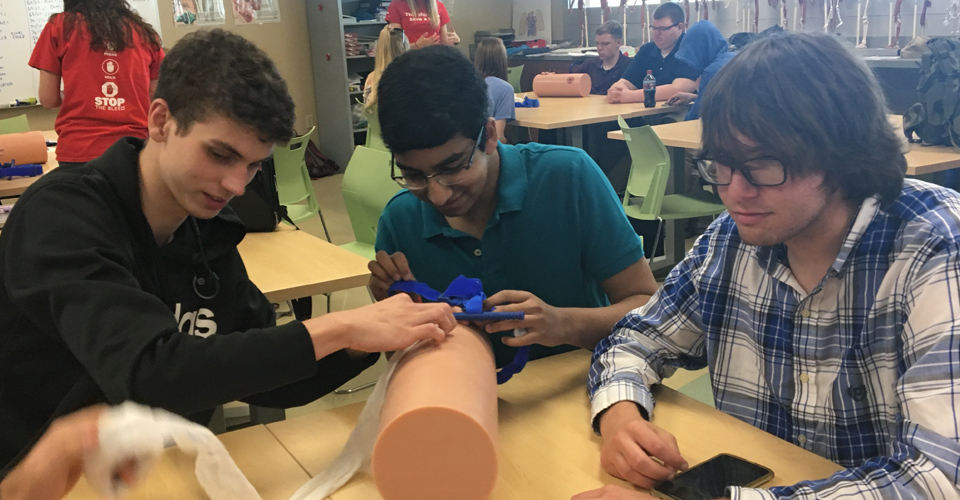“It’s a common misconception that bleeding control would only be applicable to the mass shootings or bombings that you see in the news, but it’s not. Most bleeding events happen due to accidents at home or at work; therefore, bleeding control knowledge is applicable to everyone and should be taught to everyone.”
Those were the words of Cynthia Pung, a second-year College of Medicine student helping to teach Bio-Med Science Academy seniors techniques that one day could help them save a life.
Stop the Bleed is a national program with the mission of arming people with the knowledge of how to quickly and effectively deal with bleeding emergencies. First-year College of Medicine students Lydia Du and Sharon Mackenzie Jackson, along with second-years Pung and Sharon Klapec, recently joined forces with Amanda Lencyk, a trauma coordinator at Mercy Health, to teach a Stop the Bleed course at Bio-Med.
Through discussion and demonstration, the guests explained why different techniques are used to slow bleeding in different kinds of wounds. The instructors focused on wounds to extremities—like arms and legs—and so-called junctional areas, such as armpits, the neck and groin, since those are the types that lay people can help with. First, the guest instructors explained how to properly pack a wound and apply a tourniquet. Next, the Bio-Med students practiced these lifesaving processes for themselves, getting hands-on tips as they learned new skills on prosthetic limbs.
Teaching skills to save lives
Bleeding is the leading cause of preventable death from trauma in the U.S., said these instructors; and 20 percent of people who died due to excessive bleeding could have been saved if their bleeding had been controlled sooner. In addition to everyday accidents, the increased prevalence of events of mass injuries makes it even more useful for people from all walks of life to know how to help someone in need.
“It’s important to teach our Stop the Bleed course, because the more people equipped with bleeding control knowledge, the more deaths that can be prevented,” said Pung.
As with any medical emergency, calling 911 is the first step, but now these Bio-Med seniors are also prepared to help stop the bleed.
Amber Cocchiola, a senior at Bio-Med Science Academy and an intern in the Office of Public Relations and Marketing, contributed this report.
